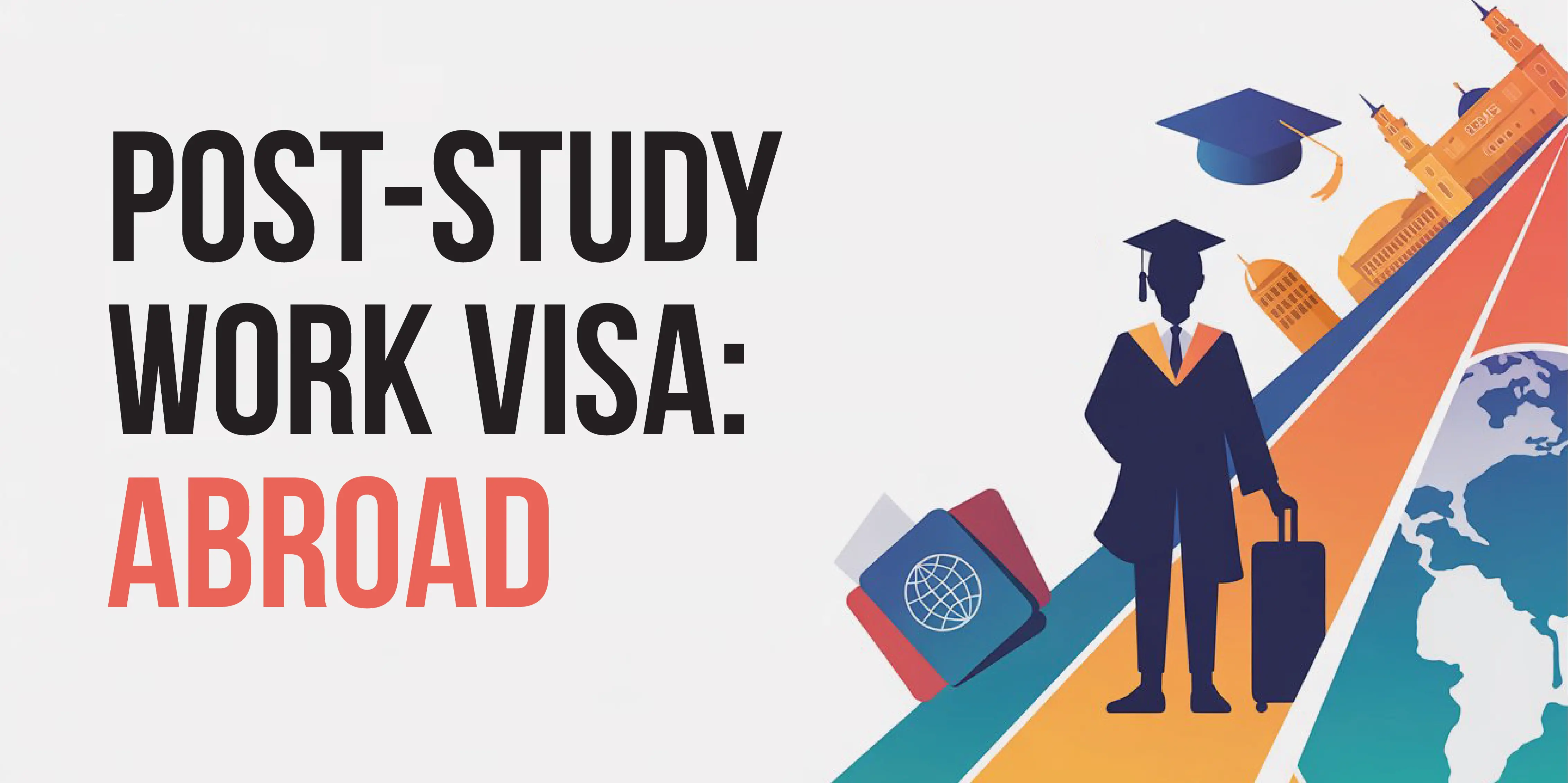https://www.wemakescholars.com/blog/funding-education-abroad-personal-loan-vs-education-loan
Funding Education Abroad: Should You Choose a Personal or Education Loan?
Study Abroad Visa | Updated on ()

HEST 2026
India's Largest Higher
Education Scholarship Test
Total Scholarships up to 2 Cr
Know more and Apply
Registrations close in
Finding a reliable source of funding abroad education is on the minds of a major percentage of students who wish to pursue their higher education abroad. The primary dilemma faced by students regarding their higher education funding is regarding the benefits of borrowing a personal loan vs an education loan. This is because a lot of them are mostly unaware of the different factors that distinguish an education loan from a personal loan. A personal loan is a life-saver when it comes to covering smaller expenses. However, when it comes to a major commitment like funding higher education abroad, education loans are your way out.
This article aims to clear the air around the debate of personal loans vs education loans in terms of funding abroad education, once and for all. Before we get into further details about the concept of funding higher studies, it is important to understand how personal loans and education loans work.
An Overview of Personal Loans & Education Loans
What Are Personal Loans?
To define it in plain, simple terms, a personal loan basically refers to an amount of money that is borrowed by individuals to fulfill their personal needs. The reason for borrowing a personal loan can vary depending on the individual’s needs at the time of applying. Personal loans can be used to meet a variety of expenses including buying a car, purchasing home appliance,s or even funding higher education.
One of the biggest benefits of borrowing a personal loan is the fact that candidates are not required to pledge anything against them. These loans are unsecured loans that are granted by lenders after considering factors such as the applicant’s income, credit and financial history, capability of repayment, etc. However, personal loans have the highest interest rates due to the amount of risk involved in the entire process and these are not a suitable funding option for long-term expenses. Personal loans are repaid in installments and candidates are not allowed any moratorium on the repayment of the same.
Read more on Abroad Education: Scholarship Vs. Self-funding Vs. Education loans
What Are Education Loans? How Do They Work?
The main purpose of an education loan is to fund higher studies. Several lenders have several education loan schemes which cater to the financial needs of various groups of students. Education loans can be utilized to fund both education abroad, as well as within India. These loans are bifurcated into two different categories based on the requirement of collateral security. The total loan term granted to education loan applicants can go up to 15 years, depending on the type of education loan borrowed and the education loan policies of the lenders.
The final education loan amount granted to students depends on a number of factors which range from their co-applicant’s financial records to the ranking of the educational institutions.The interest rates of education loans are lower as compared to those of personal loans.
Education loans can be divided into two different categories based on the requirement of collateral security.
Secured loans or government bank education loans require candidates to pledge collateral of some kind. The education loan interest rates of these loans are lower in comparison to personal loans due to the presence of collateral security. Most students prefer to fund their abroad education with the help of government education loans due to their reliability and easy policies.
Unsecured education loans are education loans without collateral security. These education loans are mainly granted by non-banking finance companies (NBFCs) and private banks. Due to the absence of collateral security, the overall cost of the unsecured education loan process for funding education abroad is higher as compared to secured education loans. Hence, students who do not possess valuable collateral to pledge are the ones who choose to fund their education abroad with the help of unsecured education loans.
In order to get an unbiased opinion of the various education loan lenders, and to know the policies of which lenders are suitable to your financial needs for your course of higher education abroad, do get in touch with the financial team of WeMakeScholars today.
Also, read about Government Bank Education Loan Benefits.
Factors Which Make Education Loans A Better Choice For Funding Education Abroad
So what makes education loans the preferred choice of many aspirants who wish to pursue their higher education abroad? Students who wish to study abroad are often caught in a tug-of-war between personal loans vs education loans when it comes to funding higher education abroad. Here are certain factors that are only applicable to education loans, as opposed to personal loans.
- Education loan moratorium period: An education loan for higher education abroad caters to the fact that students cannot become financially independent soon after completing their education abroad. In order to compensate for this, most secured education loan lenders grant a moratorium period or a loan holiday to their education loan applicants. This moratorium period lasts for the student’s entire course duration. A grace period of six months to a year is granted to students in addition to the moratorium period so that they get the chance to become employed before their repayment period begins.
- Loan Tenure: It is common knowledge that the cost of higher education has been on the increase for the past few years. Hence, students who apply for education loans, especially for their higher education abroad, often tend to apply for amounts that exceed INR 10 Lakhs. This is why the total education loan tenure is longer than a personal loan tenure. Education loans can be repaid within a span of 10 years to 15 years, depending on the lending institution’s policies.
- Education loan interest rates: The interest rates of education loans are lesser than those of personal loans. The interest rates of education loans vary depending on the type of education loan. For secured education loans, government banks charge 9% to 11% interest rates and for unsecured education loans, private banks and NBFCs charge 10% to 14.%.
- Income Tax Benefit: All education loan applicants get to enjoy a certain amount of income tax exemption, depending on their salary bracket, under Section 80 E of the Income Tax Act. Under the old income tax regime, candidates who have borrowed an education loan to fund their higher studies are eligible for an income tax exemption on their education loan repayment. The percentage of the exempted amount depends on the co-applicants salary bracket.
- Eligibility for Subsidy: The Indian government has introduced a number of education loan interest subsidy schemes for the benefit of the students belonging to certain categories of the society. This exemption can only be availed by eligible students who have borrowed an education loan for higher education abroad from prominent government banks.
All of the above-mentioned benefits are applicable only to candidates who borrow education loans to fund their higher studies in India or abroad. If you wish to know further details about the same, do not hesitate to register a callback with the financial team of WeMakeScholars today.
Why Do Individuals Apply For Personal Loans For Higher Education Funding?
This practice has been observed among those who have applied for abroad education loans to study in countries like Germany, where universities charge close to zero tuition fees. In such cases, students are only required to fund their living expenses. When such candidates approach government banks for secured education loans, many a time, due to the lack of awareness of the various education loan features, officials often tend to misguide them by advising them to fund their education abroad with the help of personal loans.
It is very important to note that funding higher education abroad with the help of a personal loan is never recommended by experts. This is because personal loans do not cover any of the benefits mentioned above.
Another set of applicants who opt to fund their education abroad with the help of personal loans are those who are in the dark about education loan schemes or the fact that it is possible to fund higher education with the help of an education loan.
If you are planning to pursue your higher education abroad but are clueless about how to fund your course, do get in touch with the WeMakeScholars financial team at the earliest.
How To Fund Education Abroad? A Comparison of Loan Terms of Personal Loans Vs Education Loans
The below table will give you a rough comparison of personal loans vs education loans with respect to certain common terms. This will help you get a better idea of funding your education abroad with the help of education loans is a better option as opposed to opting for personal loans.
|
Loan Parameters |
|||||
|
Loan Type |
Interest Rates |
Total Loan Tenure |
Total Education Loan Amount |
Moratorium Period |
Flexible Disbursements |
Grace period |
|
Education Loans |
Secured: 9% to 11% Unsecured: 10% to 14% |
10 years to 15 years |
Secured: up to INR 3 Cr Unsecured: up to INR 1 Cr |
Yes |
Yes |
Yes |
|
Personal Loans |
11.49% to 13% |
1 year to 5 years |
INR 25 Lakhs |
No |
No |
No |
Borrowing an education loan for the purpose of funding higher studies may seem like an overwhelming task. However, the terms and conditions of education loans are way more feasible for students as compared to personal loans, thus making them the obvious choice of funding education abroad.
If you are still confused about how to fund higher education abroad, do get in touch with the financial team of WeMakeScholar.s
Why Approach WeMakeScholars For Your Abroad Education Loan Process?
When students directly approach banks for inquiries regarding abroad education loan proces abroads, most of them are given only partial information regarding the same. The financial team of WeMakeScholars has sufficient knowledge about the abroad education loan process due to their experienceinf tackling even the most complicated cases. As a result, close to 3000+ students have benefited from their services.
Students who have planned their higher studies in countries like Germany and Canada are mostly concerned about their pre-visa disbursements from government banks as many of these banks are often not aware of the education loan provisions for these countries and as a result, delay the pre-visa disbursement. When you apply through WeMakeScholars, our financial officers ensure that this does not happen and often try their level best to get such loans sanctioned well in time. So, if you are confused regarding how to go about the abroad education loan process, do get in touch with our team now.
Note: WeMakeScholars is an organization funded and supported by the Government of India that focuses on International Education finance. We are associated with 10+ public/Pvt banks/ NBFCs in India and help you get the best abroad education loan matching your profile. As this initiative is under the Digital India campaign, it’s free of cost. The organization has vast experience dealing with students going to various abroad education destinations like the US, Canada, UK, Australia, Germany, Sweden, Italy, China, and France among others.s




Kindly login to comment and ask your questions about Scholarships & Education Loans